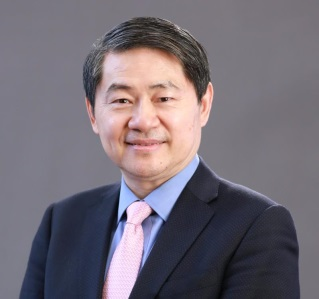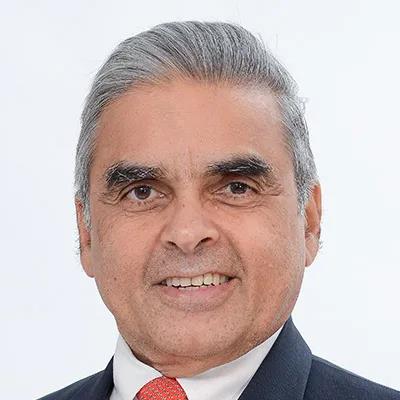Upcoming | The rise of Asia and its implications for an increasingly multipolar world

The past few decades have witnessed the rise of Asian countries, with increasing interaction and integration within the region taking place. With RCEP becoming effective at the start of 2022, the world’s largest trading bloc in history has been formed among a great number of Southeast Asian and Asia-Pacific nations, marking a milestone in the story of a returned Asia. What are RCEP’s long-term implications for regionalization of trade and the development of globalization?
The roles of great powers, China, the US, Europe, in an increasingly multipolar world have resulted in complex power dynamics in the Asia-Pacific. How can we put the US-China rivalry in the region into perspective? What are the future trends of the transatlantic relationship between the US and EU and the special relationship between the UK and the US, and how would they impact Asia and China? As the variants of COVID-19 continue to spread and climate change poses urgent threats on the humanity, can China-US-Europe find common ground in reviving multilateralism to tackle their common adversaries?
On Jan 18, the Center for China and Globalization (CCG) is pleased to host a dialogue between four distinguished guests to offer views from Asia, the US, Europe, and China – Distinguished scholar, diplomat, and Singapore’s leading voice on Asia Prof. Kishore Mahbubani who recently published The Asian 21st Century; a leading Asian expert from Johns Hopkins University SAIS Prof. Kent E. Calder; Prof. Kerry Brown, Director of the Lau China Institute at King’s College London, and CCG President Wang Huiyao.
When:
09:00-10:30pm Beijing/Singapore time, Jan 18 2022
08:00-09:30am EST, Jan 18 2022
01:00-02:30pm London time, Jan 18 2022
Language:
English/Mandarin simultaneous interpretation
Livestream:
Speakers:

Dr. Henry Huiyao Wang is Founder and President of the Center for China and Globalization (CCG). He is a Counselor to the China State Council and a Vice Chairman of China Association for International Economic Cooperation (CAIEC) under the Ministry of Commerce (MOFCOM), Vice Chairman, China Talent Research Society under the Ministry of Human Resources and Social Security. He is also Vice Chairman of China Public Relations Association; a Director of Chinese People’s Institute of Foreign Affairs and a Director of China National Committee for Pacific Economic Cooperation, both organizations under the supervision of Ministry of Foreign Affairs. He is a Professor and Dean of the Institute of Development at Southwestern University of Finance and Economics in China and a member of Advisory Committee for Global Competence Development of Tsinghua University.
Dr. Wang is a Steering Committee Member of Paris Peace Forum and was an Advising Board Member for International Organization of Migration (IOM) of the UN. He was a Visiting Fellow at The Brookings Institution, a Senior Fellow at Harvard Kennedy School and a Senior Fellow at Asia-Pacific Foundation of Canada. He has published over 100 books in English and Chinese along with hundreds of journal articles and opinion pieces on global relations, global governance, global migration, China outbound and inbound investment and trade, Chinese Diasporas and Chinese think tanks.
He is also a frequent speaker at international events such as the World Economic Forum, Munich Security Conference, Paris Peace Forum, WTO Public Forum, Munk Debate, Berlin Foreign Policy Forum, and Milken Global Forum.

Prof. Kishore Mahbubani, Distinguished Fellow at the Asia Research Institute (ARI), National University of Singapore (NUS)
Mr. Mahbubani has been privileged to enjoy two distinct careers, in diplomacy (1971 to 2004) and in academia (2004 to 2019). In diplomacy, he was with the Singapore Foreign Service for 33 years (1971 to 2004). He had postings in Cambodia, Malaysia, Washington DC and New York, where he twice was Singapore’s Ambassador to the UN and served as President of the UN Security Council in January 2001 and May 2002. He was Permanent Secretary at the Foreign Ministry from 1993 to 1998. As a result of his excellent performance in his diplomatic career, he was conferred the Public Administration Medal (Gold) by the Singapore Government in 1998. Mr. Mahbubani joined academia in 2004, when he was appointed the Founding Dean of the Lee Kuan Yew School of Public Policy (LKY School), NUS. He was Dean from 2004 to 2017, and a Professor in the Practice of Public Policy from 2006 to 2019.
Mr. Mahbubani has received significant international recognition for his many accomplishments. In April 2019, he was elected as an honorary international member to the American Academy of Arts and Sciences. He has also been a prolific author, having published eight books: Can Asians Think?, Beyond The Age Of Innocence, The New Asian Hemisphere, The Great Convergence, Can Singapore Survive, The ASEAN Miracle (co-authored with Jeffery Sng), Has the West Lost It?, Has China Won?, and most recently, The Asian 21st Century.

Prof. Kent E. Calder is the Interim Vice Dean for Education and Academic Affairs of the Johns Hopkins School of Advanced International Studies (SAIS). Calder, who also directs the Edwin O. Reischauer Center for East Asian Studies at Johns Hopkins SAIS, previously served as the school’s Interim Dean and Vice Dean for Faculty Affairs and International Research Cooperation from 2018 to 2020 and as director of Asia Programs from 2016 to 2018.Prior to SAIS, Calder served as special advisor to the U.S. Ambassador to Japan, Japan Chair at the Center for Strategic and International Studies (CSIS), professor at Princeton University, lecturer on government at Harvard, and as the first executive director of Harvard University’s Program on U.S.-Japan Relations. Calder received his Ph.D. from Harvard University, where he worked under the direction of Edwin O. Reischauer.A specialist in East Asian political economy, Calder lived and researched in Japan for eleven years and across East Asia for four years. In 2014, he was awarded the Order of the Rising Sun, Gold Rays with Neck Ribbon. Calder’s recent publications include: Global Political Cities: Actors and Arenas of Influence in International Affairs (2021); Super Continent: The Logic of Eurasian Integration (2019); Circles of Compensation: Economic Growth and the Globalization of Japan (2018); Singapore: Smart City, Smart State (2017); Asia in Washington (2014); and The New Continentalism: Energy and Twenty-First Century Eurasian Geopolitics (2012).

Prof. Kerry Brown is Professor of Chinese Studies and Director of the Lau China Institute at King’s College, London. He is an Associate of the Asia Pacific Programme at Chatham House, London, an adjunct of the Australia New Zealand School of Government in Melbourne, and the co-editor of the Journal of Current Chinese Affairs, run from the German Institute for Global Affairs in Hamburg. He is President of the Kent Archaeological Society and an Affiliate of the Mongolia and Inner Asia Studies Unit at Cambridge University.
From 2012 to 2015 he was Professor of Chinese Politics and Director of the China Studies Centre at the University of Sydney, Australia. Prior to this he worked at Chatham House from 2006 to 2012, as Senior Fellow and then Head of the Asia Programme. From 1998 to 2005 he worked at the British Foreign and Commonwealth Office, as First Secretary at the British Embassy in Beijing, and then as Head of the Indonesia, Philippine and East Timor Section. He lived in the Inner Mongolia region of China from 1994 to 1996. He has a Master of Arts from Cambridge University, a Post Graduate Diploma in Mandarin Chinese (Distinction) from Thames Valley University, London, and a Ph D in Chinese politics and language from Leeds University.
Professor Brown directed the Europe China Research and Advice Network (ECRAN) giving policy advice to the European External Action Service between 2011 and 2014. He is the author of almost 20 books on modern Chinese politics, and has written for every major international news outlet, and been interviewed by every major news channel on issues relating to contemporary China.





